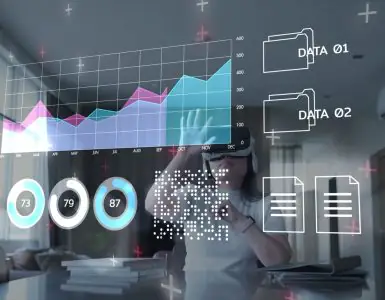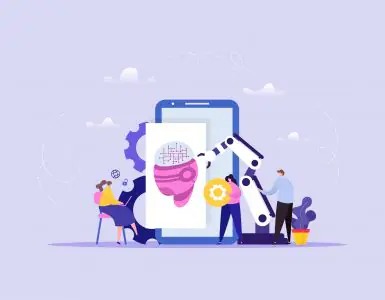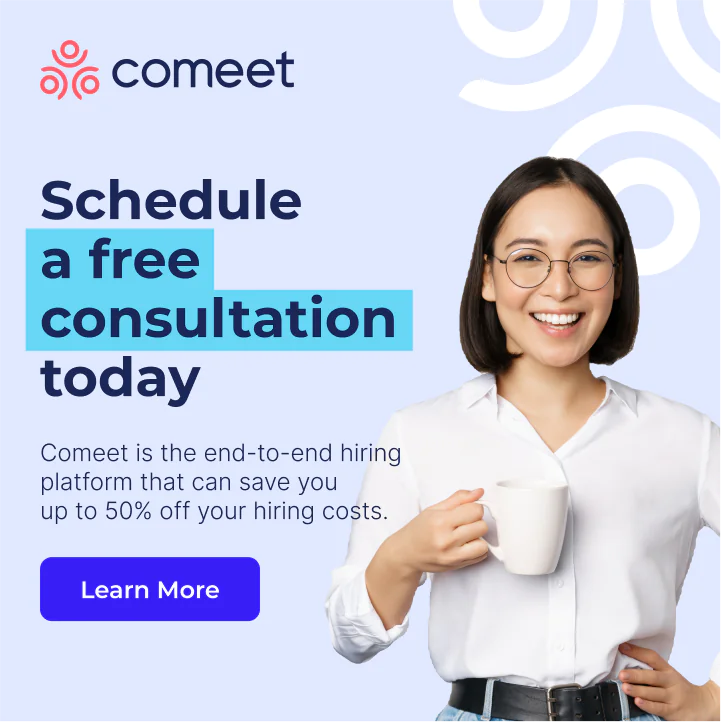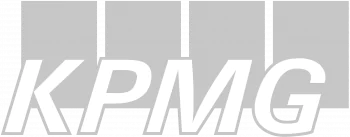In 2022, artificial intelligence already had a large role in how professionals managed the hiring process. BusinessSolution.org gathered data and found that “24% of companies utilize AI to hire talented employees” — at the same time, 65% of recruiters also used AI to speed up and improve processes. These statistics alone paint a picture of how widespread AI implementation has been across employers. Different iterations of AI tools perform a wide array of functions, from managing a complex multi-step hiring process to helping recruiters filter through thousands of seemingly identical candidates. However, just like AI is quickly stealing the spotlight in virtually every industry and application, people affected by AI-powered hiring processes continue to question the function, efficacy, and ethical role of AI in the hiring process.
In this article, we’ll dive deep into the evolving role of AI in hiring processes, the benefits and potential drawbacks of the technology, and how to ensure your company’s usage of AI tools is ethical and effective.
Let’s get started!
The Role of AI in the Hiring Process: A Brief Overview
Today’s hiring programs and software applications increasingly contain AI tools within them. Through various forms, AI can guide candidates through the hiring process, facilitate quick candidate screening and selection for recruiters or hiring teams, and ensure compliance with state or industrial regulations. Because AI iterations can operate 24/7 and in real-time, the software can help both sides of the hiring process with faster information sharing and processing. This is vital in an increasingly global world, in which organizations may have branches in different time zones or supplement a domestic team with contractors on the other side of the world. AI allows recruiters and hirers to operate at scale by providing either basic or complex provisional screening of candidate applications, tests, and backgrounds.
Some of the forms AI might take in a hiring context include AI chatbots for answering questions, AI task management tools that can use pattern recognition to ensure candidates follow the right interview and onboarding steps, and even NLP-powered interviewing tools. The applications of artificial intelligence in hiring processes can be nearly limitless.
5 Ways Companies and Recruiters Are Using AI in the Hiring Process
Because the possibilities of AI are so varied and limitless, it can be hard to find the right starting point in your organization. What processes naturally fit basic AI capabilities, and which ones will require more fine-tuning and custom solutions? What low-hanging fruit can you see instant improvements with? Start identifying easy or effective opportunities for artificial intelligence in your organization’s hiring processes by considering these five common ways companies use it:
1. Screening Resumes
With the rise of online job boards and hiring sites over the years, companies have seen a torrential downpour of resumes and applications for open positions. But screening through hundreds or thousands of potential candidates for the perfect fit is hard to do. Even basic prescreening procedures can bog down human employees and lead to hours of extra work for interviewing and screening serious candidates can begin. Today, 52% of talent acquisition leaders cite screening as the biggest hurdle in the process.
Fortunately, AI bots can handle a great deal of this filtering on behalf of organizations. AI tools can identify keywords for qualifications or experience, identify why candidates are looking for a new job (such as layoffs outside of their control), remove candidates based on pre-determined criteria, and otherwise shrink down the stack of candidates to the most qualified options.
2. Background Checks
Virtually every position requires a background check. Most employers will require a basic search for criminal activity. Teachers need to undergo a more stringent background check process. Candidates for government positions or critical government contractor positions will have the most thorough background checks of all. These processes are incredibly detailed oriented. They also involve the handling of extremely confidential information.
When AI-powered processes handle background checks, it offers a host of benefits to both employers and candidates, such as speed and privacy. It also helps protect organizations from any potential accusations of biased hiring practices: AI did the screening, not a human.
3. Interviews
Natural language processing (NLP) capabilities are what allow AI systems to interact with humans in a way both parties can understand. In fact, many NLP AI tools can “pass” for humans as they sound increasingly more conversational and offer nuanced answers or questions. As a result, bots can more than handle first-round and second-round interviews with candidates that pass the initial screening. The AI interviewers can verify the skills of the candidate and get a feel for their soft skills or personality traits. Even better, the tool can then repackage the interview into a summary for human screeners to consider down the road.
4. AI Chatbots
Everyone has questions during the hiring process. Candidates may not be able to locate or determine the next step. New hires within an HR or recruiting team may want to be sure a candidate is properly vetted. A chatbot can deliver answers to complex questions. While previous generations used basic keyword identification to deliver pre-made answers to general queries, AI-powered chatbots can interpret questions, ask for more details, and create their own answers based on known documents and processes.
5. Internal Hiring and Assessments
Hiring internally rather than externally can improve retention, increase productivity, and streamline the hiring process. But how do recruiters within a medium or large organization know if viable candidates are already within the organization? Even small organizations can feel impenetrable. AI-powered tools can assess performance reviews, soft skill assessments, and other positive indicators in employee files to identify potential candidates within the company. This focus on internal mobility offers organizations lots of direct and indirect benefits. Even better, with AI running behind the scenes, human employees can be alerted to a perfect fit without having to trawl through company data to identify any possibilities.
3 Key Benefits of Using AI Hiring Software
So far, we’ve touched on a couple of valuable benefits that AI automatically brings to the table—benefits such as speed, privacy, accuracy, and an easy focus on internal hiring. Let’s take a deeper look at some of those benefits and how any organization can immediately realize them.
Speed
AI tools can process hundreds or thousands of files, resumes, and applications nearly instantaneously. These high-volume tasks would take dozens of hours to complete by hand, even through expedited human processes that relied on keywords and quick decisions. Artificial intelligence can use pre-determined parameters and apply them to different open positions to ensure candidates are either dismissed or pulled further into the hiring process based on objective reasoning.
At the same time, AI can begin the background check process for candidates at any stage of the screening process and handle interviews. This further shortens the window from the initial job posting to the final interviews or even the beginning of the new hire onboarding process. As a result of this speed, organizations see less unproductivity due to empty positions and team gaps. Employees previously involved in manual processes can also focus on more strategic or creative tasks within the organization.
Accuracy
AI tools don’t have the same accuracy risks that manual human operations can create. AI mitigates the risk of typing errors, accidentally missing candidate files or applications, and the mistakes that can come from skimming through candidate information as quickly as possible. Bots don’t get tired and don’t have misconceptions or prejudgments; they don’t have bad days or stressful days that impact the accuracy of the information they provide. Ultimately, having predictable, consistent, and accurate processes can set your organization up for success.
Artificial intelligence doesn’t just correct the potential for human error. Nuanced tools can even give more insight than trained human interviewers by assessing dozens of cues or metrics in text-based interviews. As a result, they can quickly and accurately compile personality profiles and gauge them against the strengths and needs of the existing team to zero in on the perfect fit.
Risk Management
Hiring employees can be a risky business. Security errors, slight signs of bias, and even a missed line item on a checklist can result in anything from a missed opportunity to a security scandal to a discrimination lawsuit. By using AI tools to handle the most fraught part of hiring, organizations can protect themselves and everyone involved in the process.
3 Potential Drawbacks of Using AI While Hiring
However, there are some potential challenges to keep in mind when your organization starts to consider using artificial intelligence in the hiring process. These potential drawbacks include the following:
- Using basic tools that don’t guarantee accuracy: AI is everywhere, and that means there’s a variety of software options. Basic tools with limited functionality, high-quality and well-trained options with hefty price tags, and under-trained but over-hyped programs are everywhere in the market. Opting for a poor fit that does let than it promises — or less than you think it does — can lead to inaccurate profiles, missed candidates, and inaccuracies. For example, a poorly trained AI bot might not pick up on all the nuances of a resume or open-ended question.
- Company culture: AI has a lot of employees concerned that robots are coming for their jobs. Simply switching to AI tools in critical functions can alarm a lot of your employees and force them to consider switching to another employer. Before using AI for any organizational functions, we recommend being transparent, informing employees about how AI is there to support instead of replace, and maintaining open lines of communication.
- Ethical considerations: At a certain point of complexity, even AI experts don’t know why AI tools make the decisions they make. It’s like a black box: information goes in, and suggestions or decisions come out. This can leave hiring managers — as well as internal auditors and compliance experts — at a loss for how to explain the objective reasoning for why one candidate was selected and another was dismissed. There may be hidden biases within the software based on how it was trained and the data sets it was presented with.
What Is the Right Way to Insert AI Into the Hiring Process at Your Company?
Artificial intelligence is a growing phenomenon throughout the professional world, and there’s good reason for this. AI tools are smart, fast, and can offer practically unlimited processing around the clock. Hiring teams and candidates can both use AI tools to feel more comfortable throughout the hiring process and ensure the right candidates (both internal and external) find the right positions. Of course, this adoption should be tempered. Gradually or intentionally adopt AI, ensure your teams are comfortable and informed along the way, and protect your organization by using AI tools that make decisions you can trust. Continue your organization’s internal conversation about adopting AI software by visiting our website for more resources or by speaking to our team today.





























